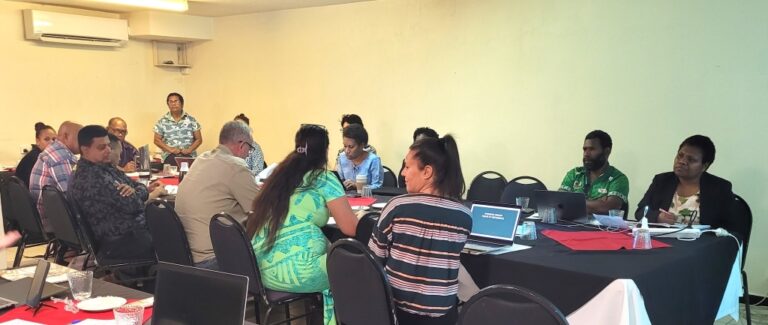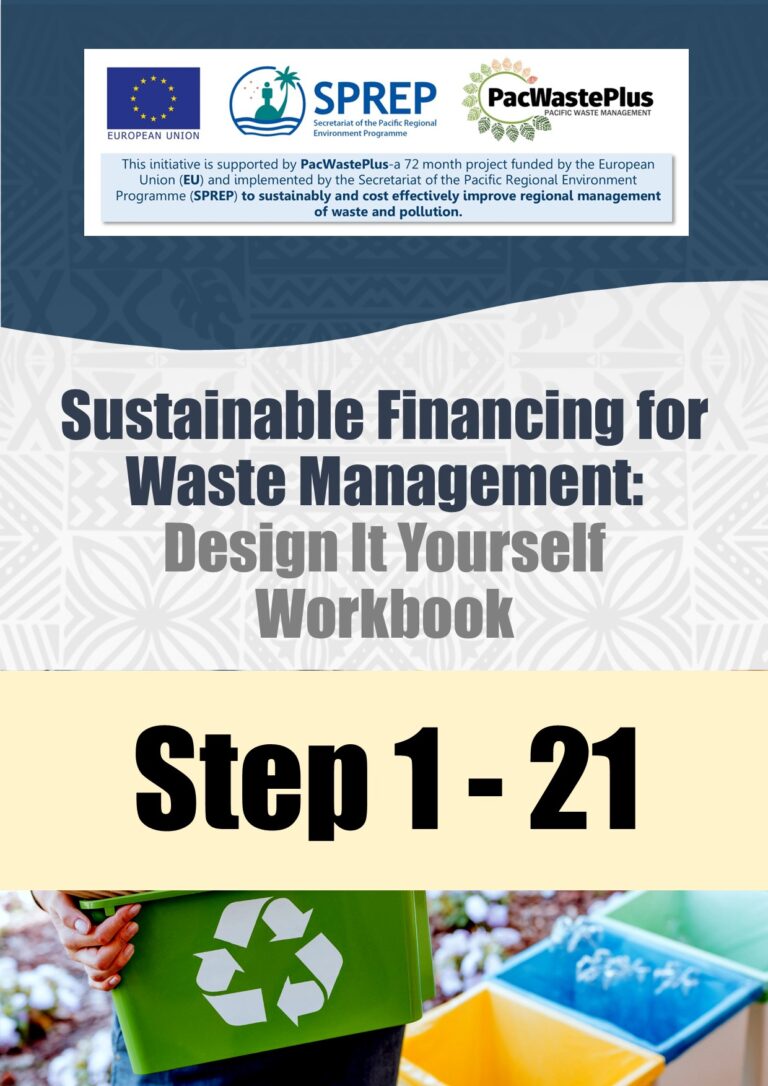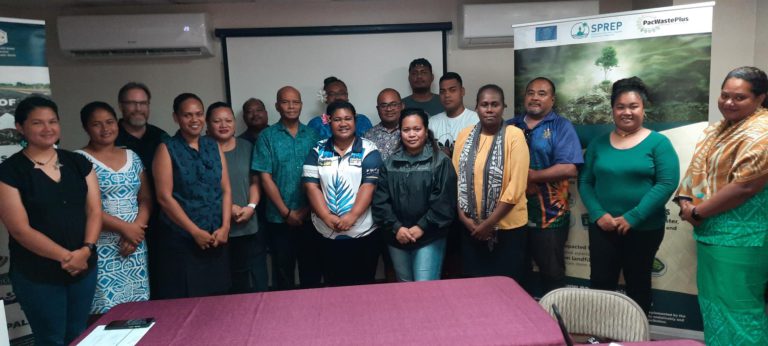Regional Project
Advance Recovery Fees and Deposits
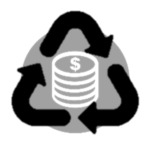
Advance Recovery Fees and Deposits (Also known as: Container Deposits, Beverage Deposits, Bottle Bills, Extended Producer/Importer Responsibility, Product Stewardship, Sustainable Financing, Waste Levy, Advance Disposal Fees)

Advance Recovery Fees and Deposits (Also known as: Container Deposits, Beverage Deposits, Bottle Bills, Extended Producer/Importer Responsibility, Product Stewardship, Sustainable Financing, Waste Levy, Advance Disposal Fees)
By design, Advance Recovery Fee and Deposit (ARFD) systems provide a regular funding mechanism to enable the collection and export of recyclable items. When target items are imported, a small fee and deposit is applied – the “fee” providing recycling agencies with a sustainable income to fund recycling activities, and the “deposit” providing an incentive for consumers to return products to a recycle collection point (and be refunded their deposit).


Project Description
Palau, Kiribati, FSM states, RMI, and Tuvalu have systems in place. From the success of these systems, other countries in the Pacific are looking to ARFD systems as a solution to provide the funding mechanism to collect and process recyclable materials.
Also known as Container Deposits, Beverage Deposits, Bottle Bills, Extended Producer/Importer Responsibility, Product Stewardship, Sustainable Financing, Waste Levy, Advance Disposal Fees.
By design, Advance Recovery Fee and Deposit (ARFD) systems provide a regular funding mechanism to enable the collection and export of recyclable items. When target items are imported, a small fee and deposit are applied – the “fee” providing recycling agencies with a sustainable income to fund recycling activities, and the “deposit” providing an incentive for consumers to return products to a recycling collection point (and be refunded their deposit). Palau, Kiribati, FSM states, RMI, and Tuvalu have systems in place. From the success of these systems, other countries in the Pacific are looking to ARFD systems as a solution to provide the funding mechanism to collect and process recyclable materials.
The purpose of this regional project is to raise awareness of Advance Recovery Fees and Deposits (ARDF) systems; and to provide resources and raise the capacity of Pacific Island countries to enable informed evidence-based decisions on the 21-step Pathway for the design and implementation of a successful ARDF system, considering the context of each country. The Cook Islands, Niue, Samoa, Solomon Islands, Tuvalu, and Vanuatu have chosen ARDF as a priority or secondary priority of their PacWastePlus country project. Kiribati*, Nauru, and RMI* are also utilising PacWastePlus legislative support outside the Country Projects (KRA 2).
* Expanding the scheme beyond beverage containers
What will the project do?
The ARFD Regional Project will utilise existing ARFD schemes and findings and resources from Country Projects to:
- Review and undertake a detailed legislative assessment of existing Sustainable Finance Systems in the region (inc Aust & other SIDS).
- Using findings from KRA2 Feasibility Studies and other resources, develop a practical hands-on “Design it Yourself” Workbook to guide countries through the 21-step Pathway
- Develop and deliver ARFD Design Training Modules to guide completion of the “Design it Yourself” workbook.
Latest news & updates
Browse through all the news & updates related to this project
Project resources
Browse through all the resources published from this project.
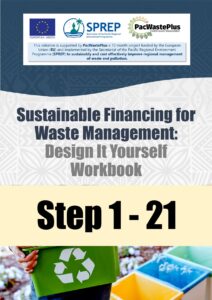
Resource Template
21 Step Advance Recovery Fee and Deposit (ARFD) Workbook
Designing and implementing a successful, evidence-based ARFD is a multifaceted process, requiring the collection of data, undertaking meaningful stakeholder consultation, and acknowledging and incorporating differing views to make decisions to meet the specific local needs. It may feel like a daunting process. The 21-Step Pathway breaks the process down into logical, manageable steps.
This Workbook is designed to assist users through the completion of each of the 21 steps at a self-managed pace. Each step on the 21-Step Pathway is a chapter in the Workbook.
This Workbook can be used by anyone seeking to design an ARFD scheme to be set in legislation or regulation. It will be of value to by any individual or group involved in the design of an ARFD scheme, for example:
• Government representatives investigating the feasibility of an ARFD scheme or who have been tasked with developing a scheme
• A Working Group tasked with developing a scheme, or contributing to one or more steps of the 21-Step Pathway
• Private Sector or NGO representatives seeking to assist with the design of an ARFD scheme, or contributing to one or more steps of the 21-Step Pathway
The broad goals of an ARFD Scheme are to improve rates of recycling through the provision of an incentive for consumers to recycle (by providing an immediate financial reward (the refund of their “deposit”) when they drop eligible items at a depot), changing behaviour away from littering, burning, or disposing to landfill, and a self-sustainable funding source for governments/recyclers to undertake the collection, transport, processing, and export/recycling of recoverable materials (using the “fee” component which is calculated as the true cost of recycling each eligible item), providing an economically viable ability to undertake recycling/transfer activities long term, not reliant on variable government funds.
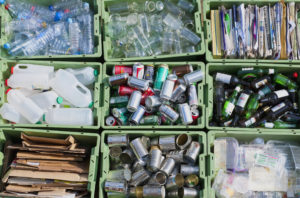
Resource Template
Waste Management Decision Support Tool
The Decision Support Tool is designed to guide decision-makers through a balanced high-level self-assessment of issues that will influence decision making. The DST poses a series of questions on Political, Environmental, Social, Technological, Legal and Economic (PESTLE) factors affecting the initiative in question. Each issue is scored whether the outcomes are positive or negative. The DST summarises responses and provides a graphical representation of the total forces for and against the initiative for each PESTLE category allowing for a quick and intuitive overview of relative benefits and weaknesses of the initiative.
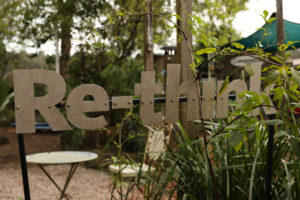
Video Resource
Sustainable Financing for Waste Management Study Tour: 10 key elements that make a successful scheme
A short video to share findings from the Sustainable Financing for Waste Management Study Tour on 10 key elements that make a successful scheme. These elements may be useful for consideration as we design and build our schemes in the Pacific.
Frequently Asked Questions
-
- PICs faced with the increasing issue of stockpiles of recyclable materials
- Limited viable options for their recycling/export
- From the success of current systems in place, Countries looking to ARFD systems as a solution
- Project designed to increase knowledge/ expertise on how to design and implement ARFD system to suit needs of your country
-
1.Education – inform strategic planning and decision-making processes
2.Pilot studies
3.Decision Support Resources / Training – package to guide project owners through decision making process, considering operational, financial, and legal factors


